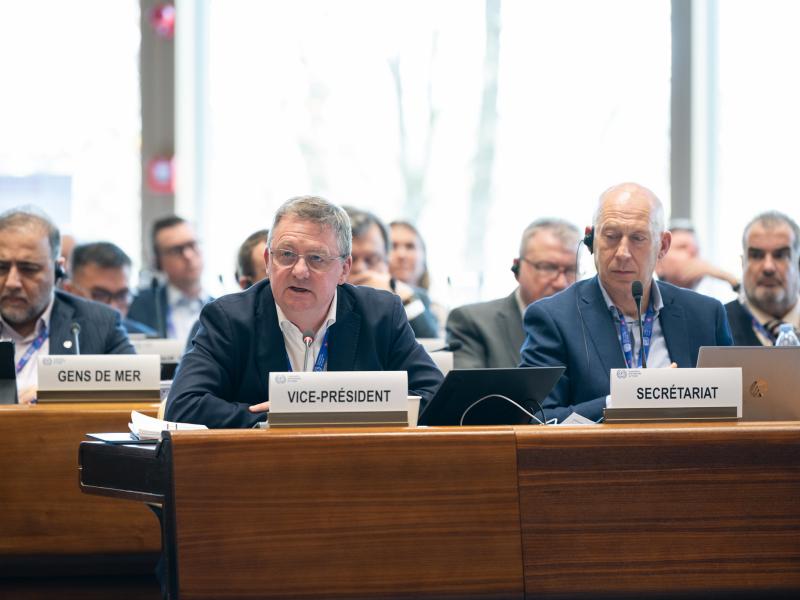Recent events in relation to the Covid-19 virus have triggered an unprecedented worldwide crisis. We are making the case for a re-engineering of multilateral governance and accountability between national and international bodies and their institutions; business and trade unions and the working people we represent to achieve more responsible business conduct.
In response to the coronavirus pandemic, governments have intervened in national economies to an extent not seen in generations. Policy proposals which transport unions have been consistently advocating for and working to engineer for decades – direct support for workers’ incomes, public ownership of strategic industries, supply controls on essential goods – are now regarded as the only tools fit for the moment. However, its fundamental that government responses to the crisis be proposed within a structured, committed and empowered framework of tripartite accountability and responsibility.
The crisis is driving the global economy into another deep recession, more debilitating than that which followed the 2008 financial crash. Most countries are entering the downturn in a worse position than they were 12 years ago. A decade of austerity across much of the world has weakened the capacity of economies and households to absorb such a shock and recover whilst shielding workers and their families from the impacts.
The ITF, and the Council of Global Unions who represents workers in all sectors worldwide, have prosecuted the case that the International Monetary Fund (IMF) and the World Bank coordinate a global economic response to the crisis. This response should build on an analysis of the failings of the 2008 financial crisis and ensures that stimulus measures focus on strengthening the real economy.
The ITF represents workers in supply chain industries that are the axle of delivery for the global economy. Yet, we find that tax evasion, labour abuse and chronic corporate governance failures are pervasive in our industries. These shortcomings must be addressed systemically for reinvestment of capital to be productive and central to overcoming this crisis and future proofing our society.
Pension and superannuation funds, sourced mostly from the deferred wages of working men and women who are currently facing the devastating challenges before us, must be recognised for the lifelong social and material support that they provide. Any transfer of public wealth to private corporations without a long-term commitment to public wealth restoration is unacceptable. Tripartite mechanisms guiding restoration, risk mitigation and sustainability must be applied going forward.
The pandemic has exposed severe shortcomings in health systems and related public services, in social safety nets, and in employment models which have rapidly extended precarious work and undermined income security. It has also revealed a serious misallocation of capital investment. A heavily financialised business sector is draining value out of the economy, rather than investing in transformative activity and long-term infrastructure needed to address challenges today.
The ITF and other representatives of labour have advocated consistently for recasting of institutional engagement, an approach where workers are included at the highest level alongside business, governments, civil society organisations and multilateral institutions. We again renew our call for a Universal Labour Guarantee that restores confidence, transparency and accountability within supply chain industries, and that restores workers’ rights, ends social dumping, provides reliable and accessible reregulation of the financial sector, and social protection for workers.
A new approach to capital allocation is needed to transform economies to meet societal challenges like inequality and climate change, to strengthen the productive sectors of economies while creating well paid secure jobs and to overturn privatisation by restoring essential public services to state ownership. Workers’ capital – the accumulated mass of workers’ retirement savings, representing nearly half the GDP of the OECD countries - must be at the heart of this new approach.
The ITF will continue to work with the Global Unions Committee on Workers’ Capital, which has long argued that workers need a greater say in how and where their savings are invested, to ensure this pool of institutional capital is better allocated to invest alongside public finance in addressing societal challenges in workers interests.
We are committed to work alongside genuine partners to renew sustainable investment in global supply chains which depend on transport workers to keep the world's citizens supplied with food, energy, building materials, and medical supplies. The industrial and resource sectors must have access to robust global supply chains.
The ITF is calling for greater levels of investment in the real economy and critically affected services such as aviation. This must also include commitments to broader initiatives such as the transition to zero carbon emissions in transport and manufacturing; in innovation and R&D to support increased economic activity, improvements in productivity, and achieve quality employment in advanced industries, such as manufacturing, renewable energy, sustainable agriculture, aquaculture, fishing and transportation systems. There must be an acceleration of our efforts to transition to carbon free transportation fuels, so transport is contributing to carbon free economies by 2050.
With governments coordinating investment from a range of sources, transnational supply chains can emerge from the coronavirus pandemic on a pathway to infrastructure fit for the 21st Century. We remain committed to working with each critical supply chain industry that the ITF represents on transitional needs, through transparent and holistic multilateral frameworks.
It is of critical importance that this transition puts transport workers, and workers more extensively, as a central focus. Success is achievable through worker participation including in the management and introduction of new technologies and automated industrial processes. Workers must have access to training and retraining and be provided with the skills to maintain jobs as technologies transform work and production processes. Job and income security must be improved, and precarious work reduced.
Collective bargaining and social dialogue in clearly defined tripartite frameworks is essential, in the transport industry and wider supply chain, built on respect for workers’ rights and the principles of worker participation. Transport industries are too often characterised by regulatory failure beyond certain national boundaries in denial of the global nature of those supply and service industries
Lack of commitment and strategy to address these current failures is a critical blockage to a more universal democratic consensus leading to outcomes of sustainability, decent work, risk mitigation and accountability that the community is seeking, and which needs to be secured at this critical junction.
We recognise this transition can only be achieved through broad democratic consensus. There will be substantial impacts on the lives of workers, not only in the transport and energy sectors but right across the economy, so it is vital that governments and business work alongside unions in co-designing and reviewing programmes for a ‘just transition’, where everyone has a stake in the future of our society.



